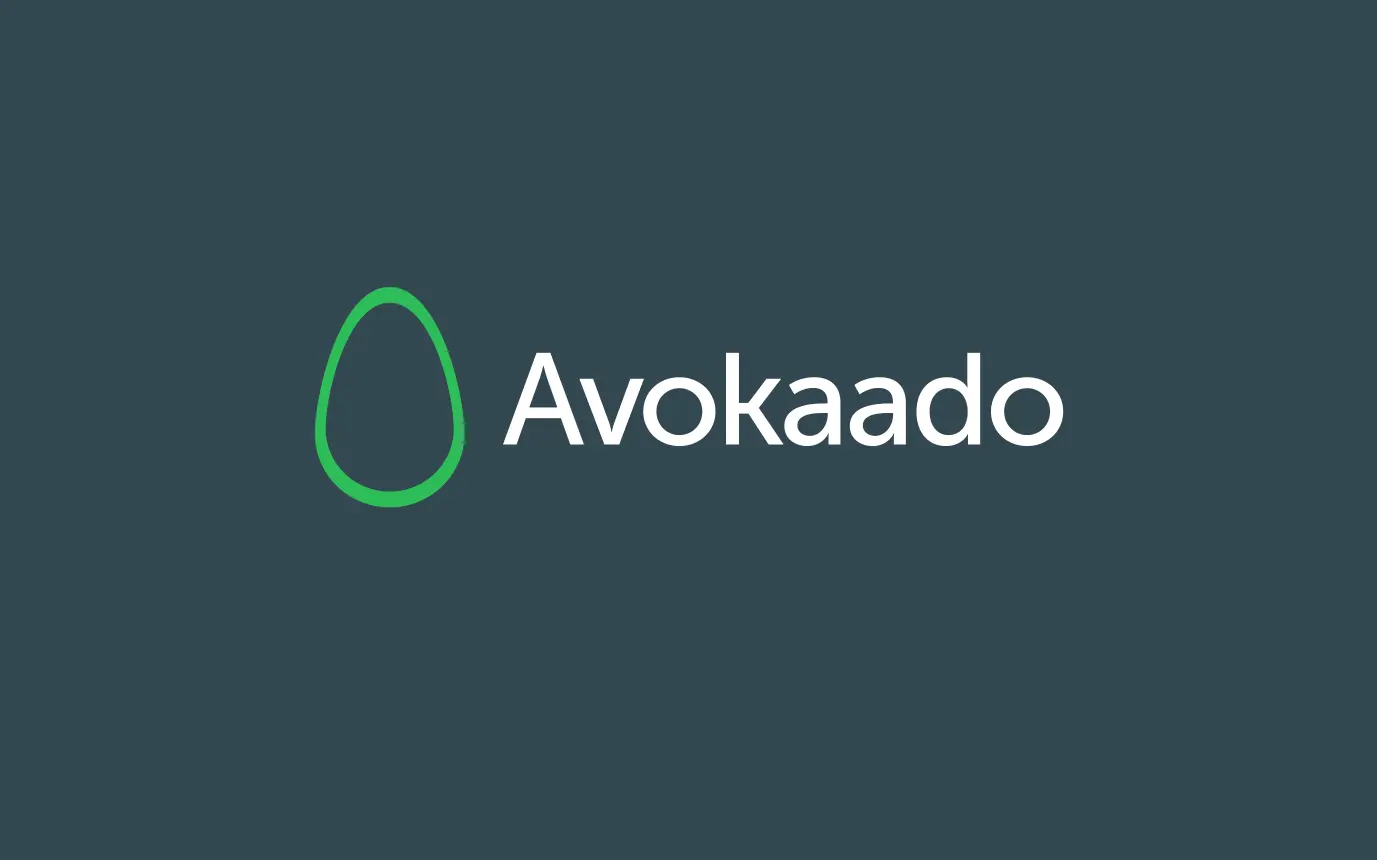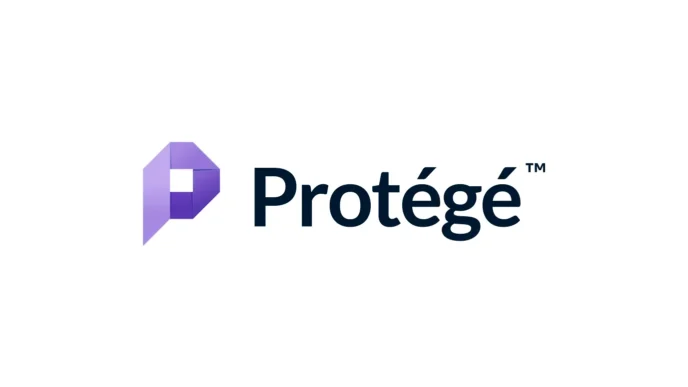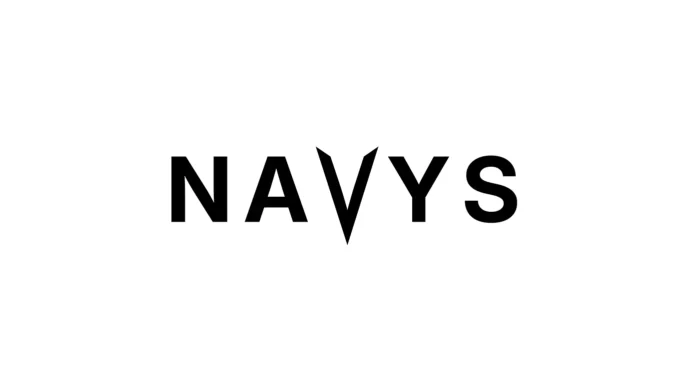There’s something oddly satisfying about a contract done right. Not just signed, done. Tracked, searchable, compliant, clean. That’s the dream. But for many legal and operations teams, the contract lifecycle still feels like a mess of half-filled PDFs, version control nightmares, and overdue reminders buried in someone’s inbox.
Avokaado has other plans.
Founded with the conviction that legal should be a proactive driver of business, not just a checkpoint, Avokaado offers a contract intelligence platform that’s far more than a smarter CLM. It treats contracts as structured data from the start. Not after the fact. Not with a half-baked integration. From day one.
And that changes everything.
From Document to Data Without the Fuss
When I got in touch with the Avokaado team, it was clear they weren’t interested in flashy demos or one-size-fits-all sales pitches. Their approach is methodical, almost architectural. Take contract automation, for instance: using templates and smart fields, teams can build contracts that are tailored, compliant, and instantly usable, not weeks later after legal’s final review.
But it’s what happens after the draft that really caught my attention. Every clause, every approval, every party is structured, searchable, and linked. It’s not just about speeding things up (though it does that). It’s about creating a foundation where legal insight isn’t locked in documents, but unlocked for the rest of the business.
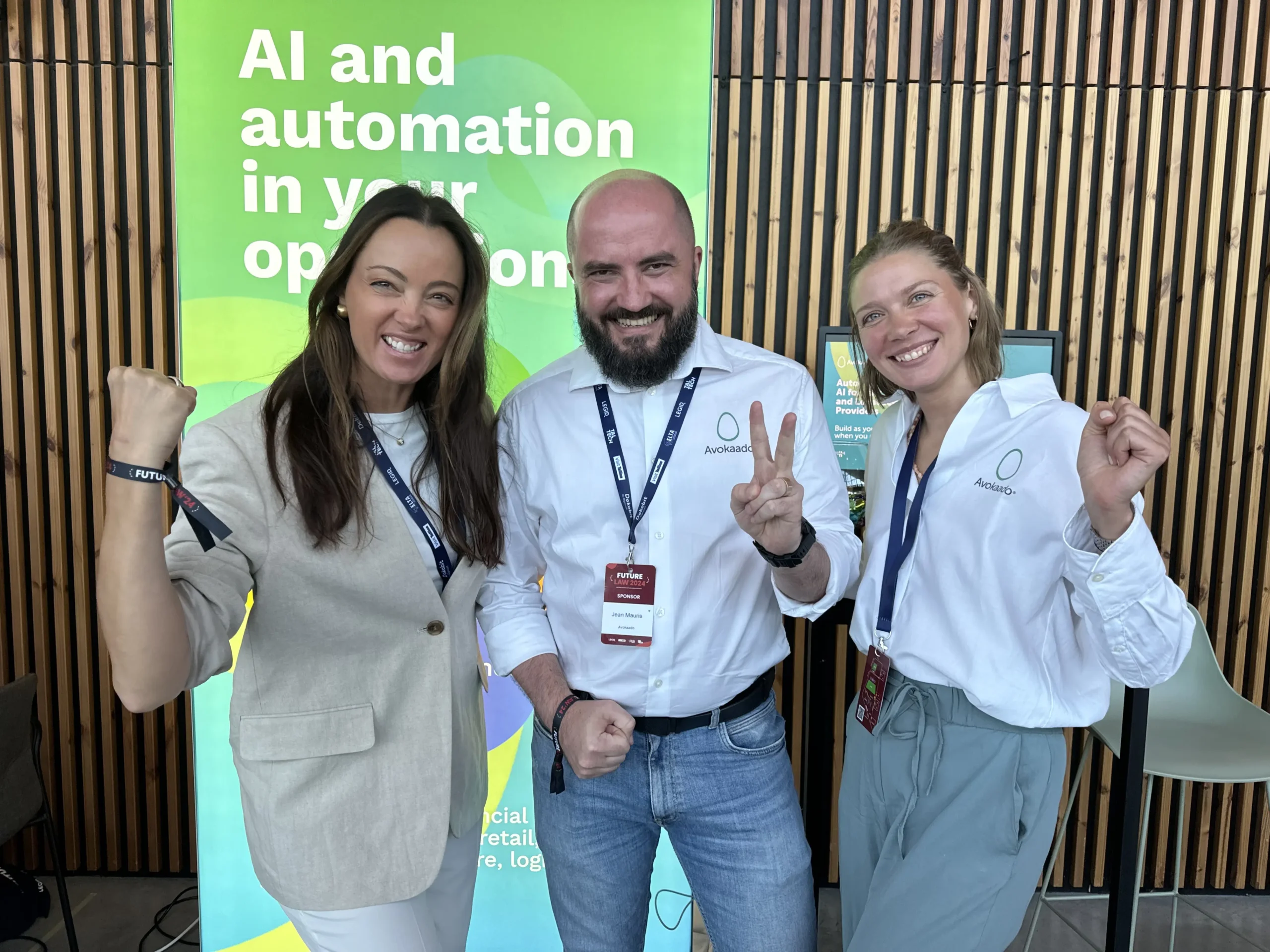
The Legal Wire spoke to Mariana Hagström, CEO and Founder of Avokaado, to find out a little bit more about Avokaado. The first question to Mariana was how Avokaado landed on “contract intelligence” as the defining lens for Avokaado. Was there a moment where the traditional CLM label started to feel too limiting?
Mariana: “Avokaado was never built to be “faster legal review software.” From the start, the mission was to help businesses work more efficiently with contracting as a process, not just legal as a function. That’s why we took a data-centric approach rather than the traditional text- and file-centric model of CLMs.
This already sets us apart: instead of storing static documents, we structure contract, party, and transaction data so it stays live, connected, and automated across business systems.
That’s why “contract intelligence” felt like the right lens. It describes more than storage or workflow – it’s about turning contract data into operational intelligence. We’re not here to serve only Legal or Sales, but to enable entire organizations with process automation and insights at scale.
In fact, we see contract intelligence as just the bridge – the step before reaching full operational intelligence across the enterprise.”
Legal Precision, Business Agility
While many platforms pitch collaboration, Avokaado has actually built it: Real-time commenting; shared approval workflows; and secure access for third parties. It’s the kind of functionality that doesn’t just benefit legal, but lets sales, HR, procurement (and yes, even finance) get what they need without waiting.
And crucially, legal teams stay in control. Pre-approved templates and clause libraries mean fewer bottlenecks. Governance rules and activity logs enforce standards. And the security controls? Granular enough to make even the most risk-averse GC breathe easy.
It sounds to me like Avokaado’s done a few things right. So I wanted to find out what Mariana considers to be the biggest contract collaboration breakdowns happening in companies today? How does Avokaado help shift that dynamic?
Mariana: The biggest breakdowns come from misalignment – each department chasing its own objectives without shared context. That creates data silos, isolated functions, and legal gets cut off from business goals. Avokaado fixes this by making contracts data-first and system-connected. Instead of teams working in isolation, everyone collaborates in one structured environment with transparency, automation, and shared visibility.”
Smart Contracts, Smarter Data
Let’s talk about data. Because here’s where Avokaado really sets itself apart.
Its platform doesn’t just manage contracts, it mines them for value. The system turns contracts into structured data in real-time, allowing legal and business teams to extract key terms, monitor obligations, and generate reports without digging through Word docs or asking someone in legal ops to “just check quickly.”
It’s a far cry from the passive repositories many companies still rely on. And the payoff is clear: better visibility, fewer errors, and smarter decisions made on actual contract data, not memory or guesswork.
Avokaado is referred to as a “data-first” platform. I asked Mariana for a behind-the-scenes look at what that really means in practice.
Mariana: “Data-first means your contracts work like systems, not files. They’re structured from day one: clauses, parties, and terms captured as data fields in our proprietary aDoc format. That data flows into registries, triggers workflows, and connects across CRM, ERP, and HRIS systems.”
This shift from passive storage to proactive infrastructure is key. In legacy systems, even if you layer AI on PDFs, you still depend on prompts and the user driving the question. In Avokaado, data activates processes itself – notifications, insights, risk scoring, renewals – without waiting for someone to ask.
And because it’s data-first, Avokaado doubles as the agentic infrastructure layer. Agents can operate reliably and usefully on live, structured data from both reliability and usefulness perspective, moving from drafting outputs to orchestrating real business actions.
That’s the difference: contracts that don’t just sit in storage, but actively run your operations. In legacy systems, the KPI was simply to get documents into a system and grant access to the right people, which often became messy and unmanageable over time.
In Avokaado, we look at it differently: the goal isn’t just storage, it’s a system that manages itself – activating workflows, keeping data clean, and scaling governance automatically.”
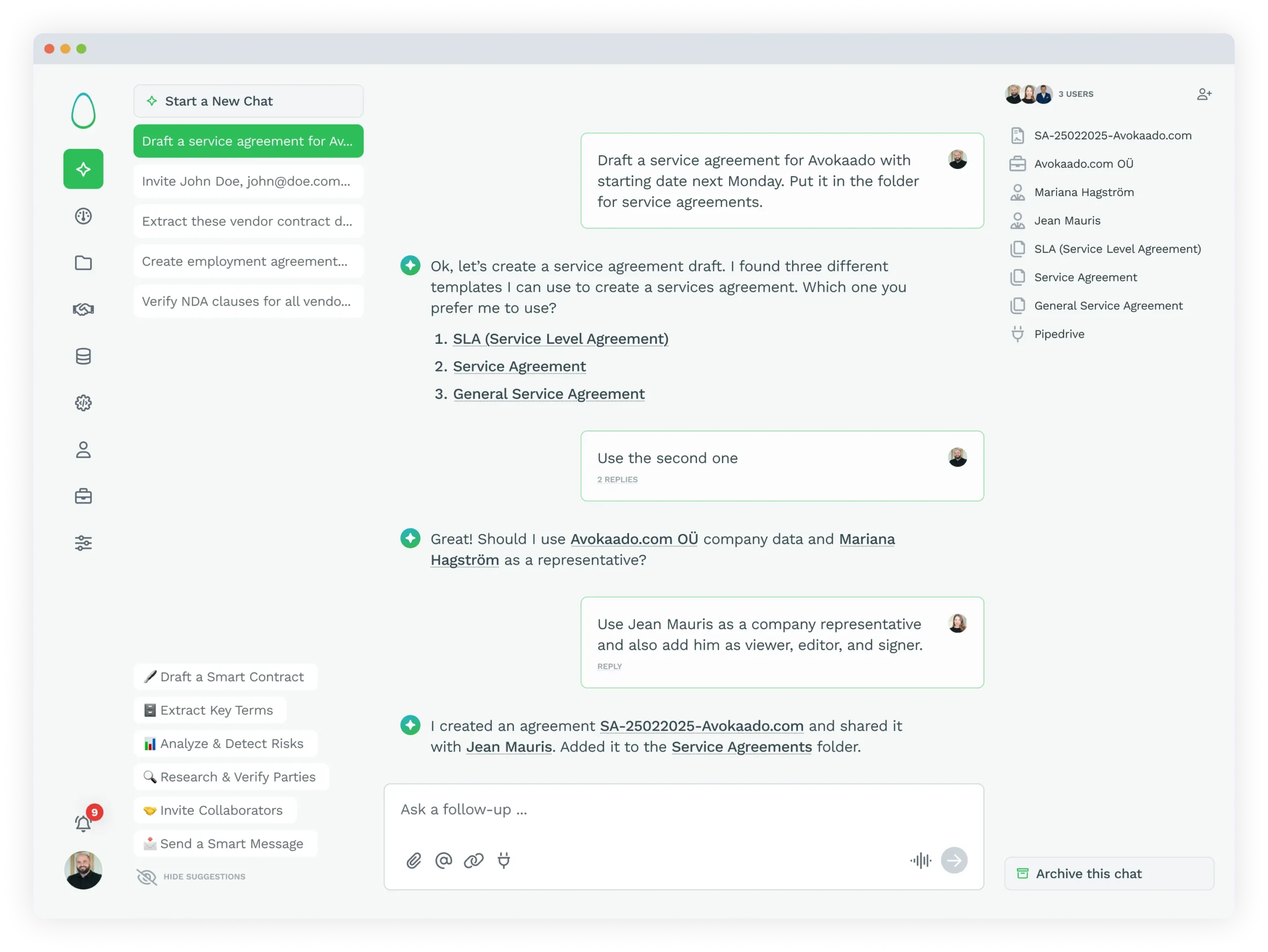
Legal AI That Doesn’t Overpromise
Yes, Avokaado uses AI. But not the kind that writes generic clauses or spits out legally questionable summaries. Instead, its AI-assisted drafting tools surface real-time clause suggestions and smart field recognition, working more like a well-trained assistant than a novelty chatbot.
And with GDPR-compliant hosting, EU-based data residency, and no third-country transfers, the platform also avoids the legal exposure that can come with more opaque tools.
Many companies rush to slap AI on their marketing. I’m always intrigued to know how companies balance focus on their AI features with the trust that legal teams require, so I asked Mariana how Avokaado approaches this.
Mariana: “We don’t just focus on legal teams – we look at the broader business challenges that slow companies down. Legal is one part, but the real value comes when legal is building solutions with product across sales, HR, procurement, and compliance. Second, we don’t rush with AI labels on features. We listen to the problems customers describe – even when they can’t yet see the solution – and we build for those pain points with trust and usability at the core. That’s how AI becomes valuable: not as a buzzword, but as infrastructure that delivers real outcomes. And yes, that takes time, not a quick AI chat bolted on for marketing, only to churn customers later.”
One Platform, Many Teams
I’ll admit it: I was a little skeptical when I saw how many teams Avokaado claims to support: legal, sales, HR, procurement, revenue. But in walking through the actual workflows, it makes sense.
- Sales can draft and sign contracts faster, without needing to bug legal every time.
- Procurement can standardize vendor agreements and track obligations across the supply chain.
- HR can automate hiring docs, amendments, and onboarding, all with less back-and-forth.
- Legal? They get to stop being the bottleneck, and start being the enabler.
So, it’s not about replacing legal. It’s about amplifying legal’s reach and making every contract a source of business insight.
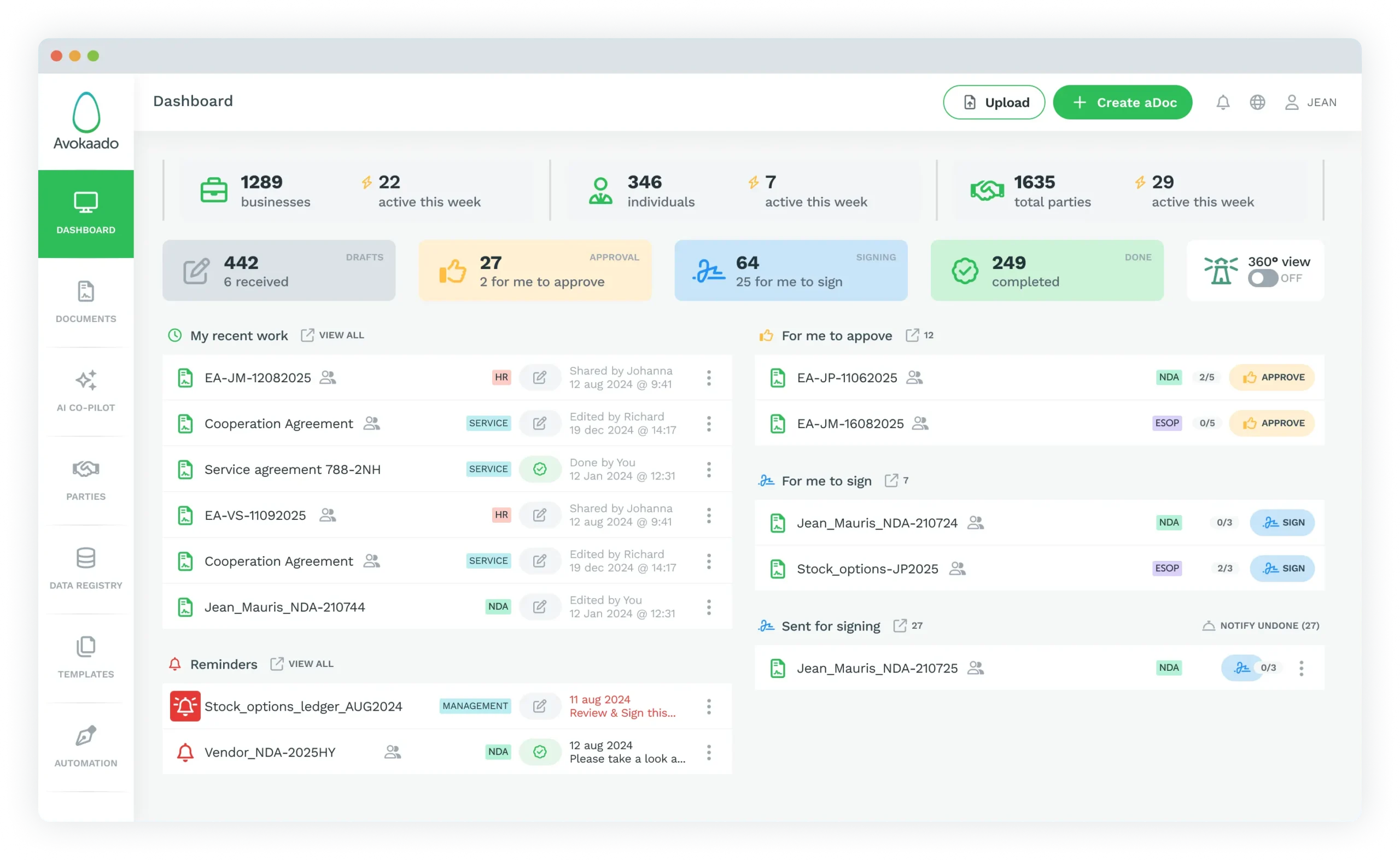
Putting on my ‘lawyer hat’, I thought it was time for some self-reflection, so I asked Mariana where she thinks legal teams underestimate their own strategic value, and how platforms like Avokaado help them show that value to the rest of the business?
Mariana: “I think legal often underestimates its strategic value by cornering itself into disclaimers and risk mitigation. That’s important, but it’s not enough. The real leap comes when legal takes the courage to design and orchestrate systems that serve the whole business. With Avokaado, teams shift from being document- and Word-centric to being data-centric – unlocking insights, visibility, and business outcomes on an entirely new level. I believe the real game changer is moving out of the “legal vs. non-legal” box – and moving beyond MS Word.”
Built for Scale, Without Sacrificing Control
What struck me most is how Avokaado manages to be powerful without being prescriptive. Want your workspace hosted on-prem? No problem. Need custom branding? Easy. Want to keep certain workflows limited to just one team? Done.
It’s a system built to grow with a business, not dictate how it runs. And that flexibility, combined with airtight security and structured data, might just be the winning combo that makes contract intelligence a category in its own right.
Lastly, we wanted to hone in on who Avokaado could be used by, and what kinds of organizations benefit most from Avokaado today? I asked Mariana if there are industries or use cases where the value becomes especially clear?
Mariana: “We work primarily with medium to large enterprises in compliance-heavy sectors – where both data integrity and documentation volumes are critical. That includes banking and finance, telecommunications, and insurance, but also industries like manufacturing and healthcare.”
Closing Thoughts
There are plenty of contract tools out there. But very few that actually help you think differently about contracts.
Avokaado doesn’t only want to help you go faster, it also wants to change what you see when you look at a contract. Not just a static file, but a live source of insight. A legal artifact that doubles as a business asset.
That’s a pretty exciting shift.
And for companies looking to scale smartly, collaborate securely, and keep legal plugged into the heart of the business?
Avokaado might just be what you’ve been waiting for.




